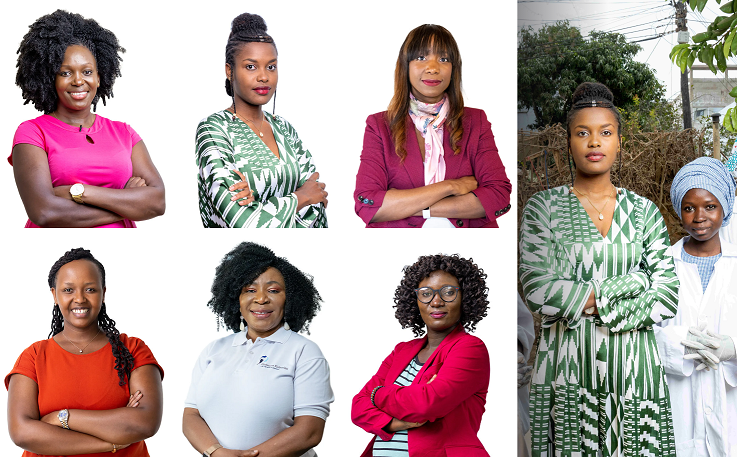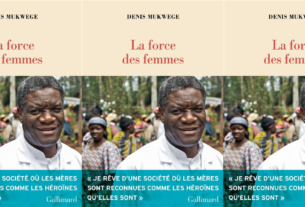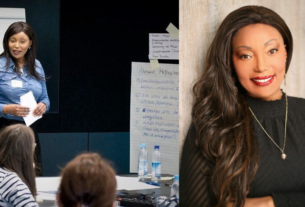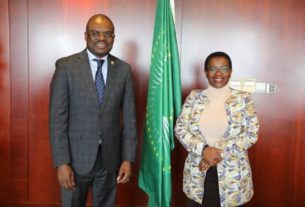Three women entrepreneurs won in the new category “Sub-Saharan Francophone Africa” while the other three were awarded in the category “Anglophone and Lusophone Africa”.
The Cartier Women’s Initiative is an annual international entrepreneurship program that aims to create change by building the capacity of women impact entrepreneurs. Founded in 2006, the program is open to women-led and women-owned businesses from all countries and sectors that aim to have a strong and sustainable social and/or environmental impact.
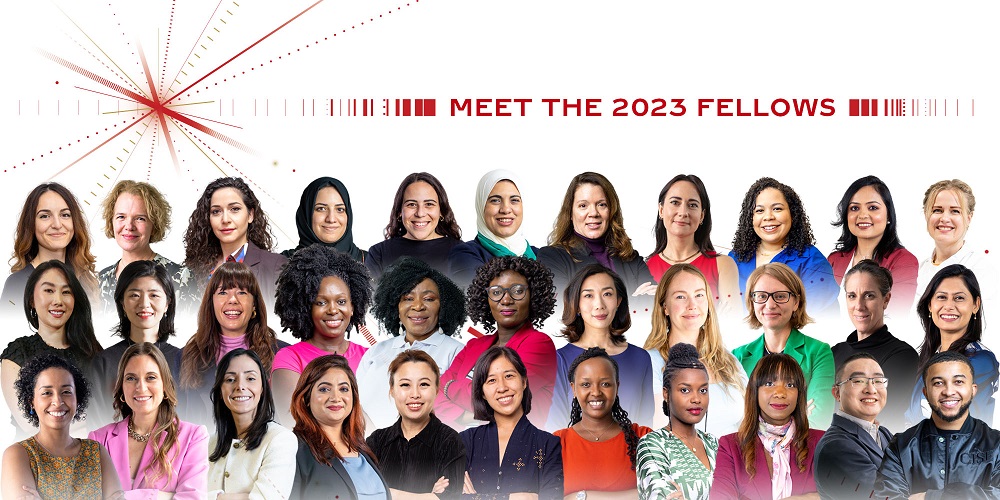
This year, the Cartier Women’s Initiative is proud to welcome 33 new Fellows to its global community of nearly 300 impact entrepreneurs. These change-makers, it is reported, hail from 23 countries and have created effective market-based solutions to global challenges, in sectors as diverse as healthcare, education, food systems and climate solutions, to name a few. Below are the 2023 winners:
Sub-Saharan Francophone Africa Category
Bola Bardet (Benin), Founder and CEO of Susu

French-Beninese entrepreneur Bola Bardet is the founder and CEO of Susu, a startup that provides personalized health and insurance services to Africans based in Africa and funded by their relatives in the African diaspora.
Bola Bardet was inspired to launch her company after the death of her father in Benin, while she was a banker in Switzerland.
Susu, whose marketing, technology and product management teams are based in France, also employs country managers in Africa who oversee local teams and customer service. Currently, 6,000 expatriates use Susu’s service to transfer care (rather than money) to their relatives living in Côte d’Ivoire, Senegal and Cameroon. “When one of our clients has a safe delivery, we take it as a personal victory. The most rewarding part of our job is making money while doing good,” explained the entrepreneur.

For the future, Bola Bardet would like to see Susu become as essential a tool for Africans in healthcare as the mobile money system is now for financial services. “Only as a means to achieve our ultimate goal, which is to solve health problems in Africa,” the entrepreneur said.
Bola Bardet holds an Executive MBA from HEC Paris and a Chartered Financial Analyst from the CFA Institute. She is also a graduate of the Entrepreneurship Program at Babson College in San Francisco.
Siny Samba (Senegal), Founder of “Le Lionceau”

Senegalese entrepreneur Siny Samba is the founder of “Le Lionceau,” a company that produces nutrient-rich baby food tailored to local tastes using 100% local grains, vegetables and fruits.
In 2017, Siny Samba, a food processing engineer, returned to Senegal after working for a baby food company in France. She had studied infant nutrition and noticed the distinct lack of diversity in baby food on Senegalese grocery store shelves. She also observed that small-scale farmers often had trouble selling their produce, resulting in crop losses. “I thought, ‘Why not try to minimize these losses? Another need arose when she began talking with mothers about how they fed their babies. “One woman told me that her child never drank water. She would only give him soda and juice,” Siny Samba said.
Samba created Le Lionceau to expand store shelves with nutritious, locally sourced baby food based on local recipes, while addressing some of the challenges of peasant agriculture in Senegal.
To address the problem of poor infant nutrition, Le Lionceau organizes educational workshops to help parents understand nutrition and improve their babies’ health. “We go to urban and rural areas to train and educate people on the importance of the first 1,000 days, including the importance of breastfeeding and how mothers can use local crops to prepare food for their babies and themselves,” says Siny Samba.

Working with farmers, the company turns what would have been wasted into a valuable food product. “In the mango fields, 60 percent of the mangoes would usually be wasted – they would not be bought or would just sit there,” she says.
Le Lionceau employs 25 people and buys crops from cooperatives of more than 5,000 farmers. “We make an impact by working with farmers. They get more income and a stable income because they know we will buy every month. We need tons of grain. The company also empowers more than 500 local women, including participants in nutrition education workshops and women’s groups that are part of Le Lionceau’s supply chain. “We teach them how to process local crops to maintain quality and produce a final product that meets our baby food standards.
To date, Le Lionceau’s high-quality baby food has fed 20,000 children, and Siny Samba aims to feed millions more. In West Africa alone, 320 babies are born each year. “The baby food market is vast. Today we are in Senegal, but people from Ivory Coast and Ghana have contacted us because they want our product. The company plans to expand when it is able to increase its production capacity. “For next year, our goal is to have our own factory and increase production so we can satisfy the local market in Senegal, but also start exporting to neighboring countries.
Le Lionceau also plans to expand its product line to work with NGOs and governments in the food aid market by developing more affordable and accessible locally sourced baby food.
Yvette Ishimwe (Rwanda) Founder of Iriba Water Group

Yvette Ishimwe is the founder of Iriba Water Group, a company that provides clean water to rural and urban communities in Rwanda by establishing water kiosks and selling water filters and ATMs.
During its pilot project, it set up a rural kiosk in the village of Ruramira, which provides water to 3,000 people. It now serves more than 30,000 people a day.
Yvette Ishimwe experienced the lack of clean water when her family moved from Kigali to a rural village. “There was no water for the house or even for drinking. Water was expensive and it was difficult to get clean water,” she says.
The young entrepreneur looked for ways to obtain this vital resource. Her family could rent a truck to pump water from a nearby lake and bring it to their home. But the lake water was not safe to drink, so she looked into purification solutions and found a kit that cost US$400. “My mother gave me the money. They installed it on our water tank, so my family had clean water. Then the neighbors started coming. After three days, our compound was full of people coming to get water from our house.
At the university, Yvette Ishimwe discovered that the problem of access to water extended far beyond her community. She entered the solution she had created for her family in a business competition and received $10,000 to implement her idea on a larger scale. The money allowed the village to build a solar facility to pump water from the valley’s natural spring and deliver it to water kiosks where people can easily access it, instead of trucking it in from the lake.

Inspired by what she had accomplished in her village, Ishimwe said, she created Iriba Water Group, a social enterprise that addresses the problem of drinking water shortages in Rwanda and other low-income African countries. The company’s Tap & Drink systems, installed in public places such as markets, parking lots and schools, connect to and purify municipal tap water. The public can access the water with a “water dispenser card” and Iriba tracks water usage with management software. Franchisees manage the systems, complementing the company’s core mission by creating local jobs.
Since 2017, the company’s 74 Tap & Drink systems have brought safe, affordable water to more than 300,000 people in Rwanda and eastern Democratic Republic of Congo, and it is now replicating the model in Central African Republic. Along the way, the company has created 68 jobs and reduced CO2 emissions by 62 tons per month.
Over the next five years, the plan is to provide clean water to 2,750,000 people, create 685 jobs and reduce emissions by one million tons per month. “For our rural water supply solution, we had one plant and we are building more in rural areas. By March 2024, we will have about eight of these rural water supply systems,” says Yvette Ishimwe.
Yvette Ishimwe holds a bachelor’s degree in business management with a focus on logistics and operations from Southern New Hampshire University.
Anglophone and Lusophone Africa Category
Angella Kyomugisha (Uganda), founder of Kaaro Health
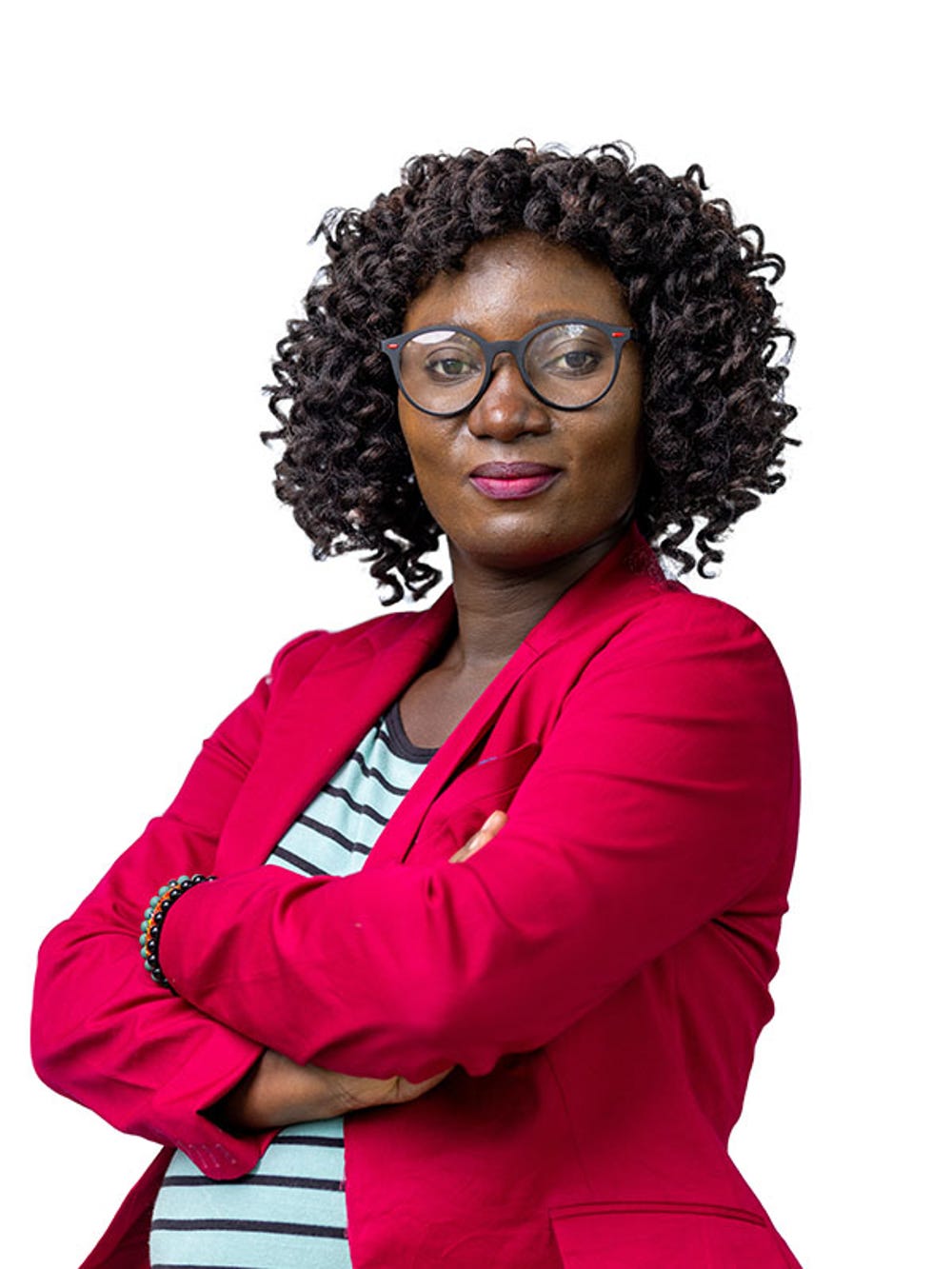
Kaaro Health empowers nurses to create health care businesses in rural Africa and uses technology to bring doctors to hard-to-reach villages.
Angella Kyomugisha, a financial management professional, they explain, was seven months pregnant in 2014 when her business moved her from the big city of Kampala to a remote village. Soon after, a life-threatening pregnancy-related emergency required immediate medical attention. “The nearby clinic I was rushed to did not have electrical infrastructure or basic ultrasound to diagnose a pregnant woman’s condition,” the entrepreneur recounts. She gave birth prematurely. After being transferred to the main hospital, the mother and baby spent three months fighting for their lives. They survived, but Angella Kyomugisha continued to think about what had happened at the clinic. The nurse had no equipment to diagnose her or know what was going on. This traumatic experience gave her firsthand knowledge of health inequities in Uganda and led her to create Kaaro Health.
With her colleagues, Angella Kyomugisha, thought about what could help health care providers like the nurse who had helped Angela. They began selling a small batch of equipment that included a solar system to ensure access to electricity. “We wanted to make sure that no other woman or baby went through what I went through,” Angella explains.
The idea evolved into Kaaro’s current offering: “container clinics” providing everything rural providers need to serve local communities. In addition to solar power, the clinics are equipped with laboratory equipment and an internet connection, to function as telehealth centers linking rural communities to city-based doctors. Local nurses manage the clinics and patients pay a small fee to access the doctors remotely.
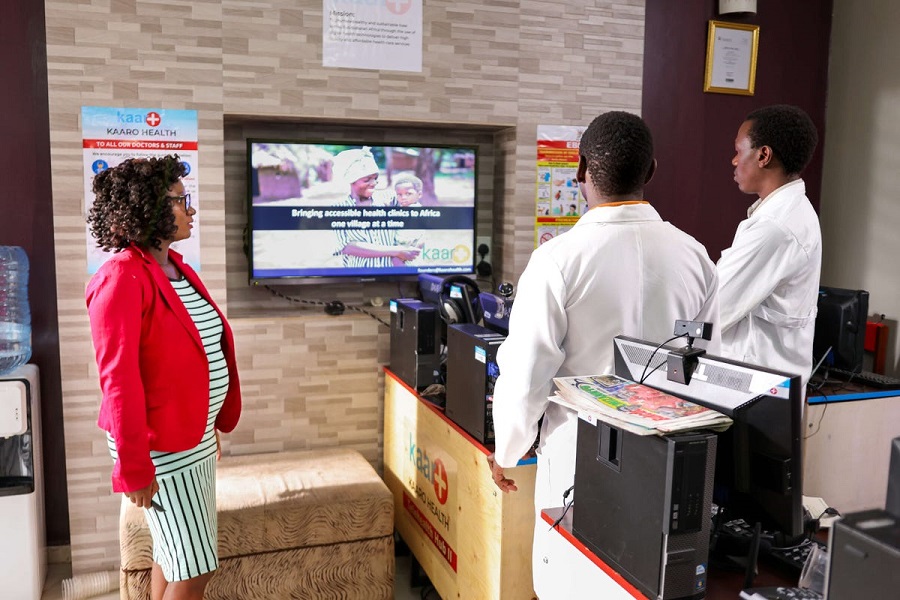
The physical presence of nurses, it is reported, plays a key role in the success of the clinics. The nurses are trusted members of the community and serve as a gateway to telehealth services, putting patients at ease and providing physicians with more complete information based on a physical examination.
Kaaro Health also empowers nurses to become healthcare entrepreneurs. Nurses can purchase a clinical container financed by monthly payments of approximately $300 over five years. This amount is manageable, as nurses can earn between $1,200 and $2,000 per month operating the clinic.
Since 2017, Kaaro Health has grown to over US$800,000 in revenue. The 76 container clinics receive an average of 22 walk-in visits per day, five to seven of which require a consultation with a physician.
Charlot Magayi (Kenya), Founder of Mukuru Clean Stoves

Mukuru Clean Stoves produces clean, affordable and reliable stoves for underserved markets to help mothers keep their children safe, save fuel and reduce household air pollution.
The dangers of woodstoves, they explain, hit Charlot Magayi hard when his two-year-old daughter suffered severe burns from a traditional stove. Charlot grew up in Mukuru, one of Nairobi’s largest informal settlements, and dropped out of school when she became a mother at the age of 16. Her daughter’s injury motivated Charlot to return to school to focus on solving the problem of the cooks. “I learned that household air pollution was killing about 23,000 Kenyans every year. The majority were still using inefficient stoves or open fires, and the cost of fuel was about one-third of their monthly salary. We needed to solve all three of these problems,” said Charlot Magayi.
The latter founded Mukuru Clean Stoves in 2017 to help keep children safe, reduce household air pollution and save on fuel consumption. “We built a stove that would allow fuels to burn longer, which helps reduce household pollution.

Many of Mukuru Clean Stoves’ first customers, it is reported, sent stoves to their families in rural areas, so the company built a factory in western Kenya to be closer to its target consumers. A year later, it moved its operations from Nairobi to the larger rural factory. “We have 25 artisans, including 18 women who build the stoves. We are building a second plant to make ethanol and pellet stoves, as well as ethanol from sugarcane waste,” said Charlot Magayi.
Magayi measures the impact of her company by counting the number of stoves sold and multiplying by five – the average household size – to arrive at a figure of 207,000 people benefiting from cleaner air thanks to her stoves. Families, it is reported, have saved more than $20 million in fuel consumption, or $104 per year per family. Each stove eliminates 500 tons of CO2, for a total of over half a million tons. The local businesswomen who distribute the stoves earn a 10% commission on each one, supporting the local economy and improving their prospects.
Charlot Magayi aims to distribute 10 million stoves in East, West and Central Africa. Mukuru Clean Stoves is also extending its impact to the other end of its supply chain, working on a project with farmers to collect dried agricultural waste that it will use to make briquettes.
Dupe Killa-Kafidipe (Nigeria), Founder and CEO of Platinum Fisheries

Platinum Fisheries is a company specializing in the production, processing and packaging of healthy fish and other seafood for the Nigerian and ultimately global markets, using efficient and ethical methods.
Dupe Killa-Kafidipe, it is said, comes from a long line of Nigerian fishing communities and values the role of fish in the country’s culture and as a source of protein. However, she said she has seen the degradation of marine life and the devastation of the environment. Her sensitivity to the environment began in childhood. She later became a rights and protection activist and spent three years helping young people and women escape illiteracy and poverty in a conflict-ridden region of the country. She discovered the importance of not just giving people money, but education and skills training, an idea expressed by the fishing adage: “Give a man a fish, you feed him for a day. Teach a man to fish, you feed him for life.”
In 2016, Dupe Killa-Kafidipe founded Platinum Fisheries to address both the challenges of food insecurity in Nigeria and the impact of traditional wild fishing on fish populations. This ethical seafood production and distribution company supplies fish and other seafood products to over three million households from its two-hectare farm on the outskirts of Lagos. In addition to producing fish for wholesale, Platinum Fisheries sells organically produced fingerlings and fish meal to other fish farms.

In addition to supplying seafood, Platinum Fisheries’ mission is to help fishermen make the transition to raising fish in an environmentally friendly manner through training and mentoring. The company is developing a technology system that increases production while minimizing resource use by controlling such things as water temperature, salinity and waste collection.
Training provided by Platinum Fisheries, it is reported, has helped 65 fishermen make the switch to sustainable farming, and the goal is to reach 500 in the coming year. In the longer term, Dupe Killa-Kafidipe wants to take Platinum Fisheries beyond the seafood industry.
